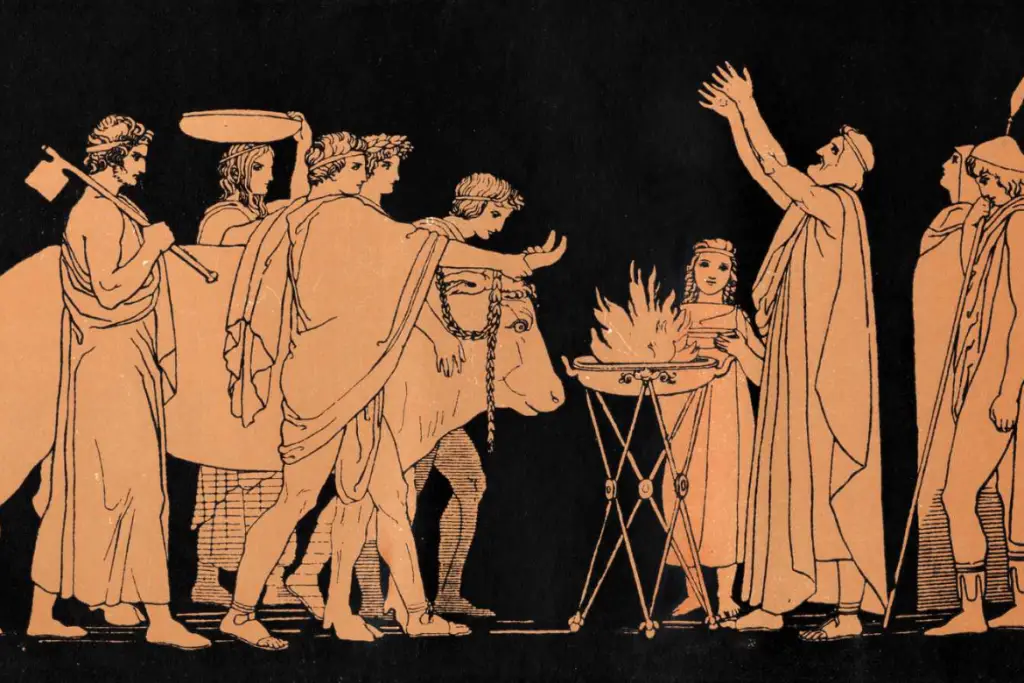Stepping into the world of slang is like diving into a linguistic treasure trove, each term offering a peek into evolving cultures and subcultures. One such term that’s been bouncing around the streets, especially in the UK, is “pagan.” But wait, isn’t that a religious term? Why is it street slang? Let’s embark on this wordy adventure together.
If your understanding of “pagan” is rooted in ancient religions or polytheistic beliefs, then street slang’s appropriation of the term might leave you scratching your head. But fear not, for we’re about to untangle this web of words and offer some clarity.
Origins
Historically, the term “pagan” finds its roots in Late Latin “paganus,” which was used to denote a civilian or country dweller. Over time, as Christianity spread across the Roman Empire, this term evolved. It was then used to classify people adhering to non-Abrahamic faiths, specifically those who continued to follow old polytheistic religions as Christianity became more dominant. The label “pagan” was, in many instances, not just a descriptor but a tool of derision, employed to segregate and sometimes belittle those who weren’t followers of monotheistic religions like Christianity, Islam, or Judaism.

This distinction wasn’t just theological. During the Middle Ages and other periods, being labeled a pagan had socio-political implications. Pagans were often seen as outsiders, the ‘other’, or even barbarians. In many historical accounts, these were individuals who needed to be “saved” or “converted,” an attitude that resulted in a myriad of cultural clashes and transformations throughout the centuries.
Transitioning from such a weighty historical and religious backdrop to the bustling streets of modern London might seem like quite the leap. But that’s the beauty of language — it evolves, mutates, and adopts new identities, sometimes in ways that are entirely unexpected. Street slang, with its dynamic nature, often taps into historical lexicons, molding old terms to fit contemporary narratives.
In the melting pot of London’s diverse and ever-changing urban culture, “pagan” underwent such a transformation. Stripped of its religious undertones, it was reborn as a descriptor for someone untrustworthy or disloyal. But if you peek beneath the surface, you can still see the echoes of its original meaning. Just as historical pagans were viewed as outsiders or even threats by some, in street slang, a “pagan” is someone outside one’s circle of trust.
This repurposing of words is not unique to “pagan.” Street slang globally has a rich history of reclaiming, redefining, and remixing language to better fit the rhythms and realities of urban life. These linguistic shifts provide valuable insights into societal changes, cultural fusions, and the perennially adaptive nature of human communication.
Meaning & Usage
In the context of UK street slang, especially within the grime music scene and urban subcultures, a “pagan” is someone who is considered untrustworthy or disloyal. It can refer to a former friend who’s betrayed trust or someone who’s seen as an enemy. Example: “I don’t roll with him anymore; he’s a pagan.”
The term’s derogatory undertone, while different in context, still resonates with its historical usage where it was often used to demean or belittle.
Evolution & Variations
As with many slang terms, the nuances of “pagan” can shift over time and across regions. While its core meaning remains centered around betrayal or mistrust, in some circles, it’s broadened to just mean someone you dislike or have a problem with. There’s also been a playful reclamation of the word, with some using it in a tongue-in-cheek manner among friends.

Related Slang or Phrases
Similar to “pagan” in its indication of mistrust or conflict, terms like “snake,” “op” (short for opponent), or “wasteman” might be thrown around in the same circles. Each has its flavor and nuance, but all center around a notion of conflict or disdain.
Cultural Impact & References
The rise of UK’s grime scene, with artists like Stormzy, Skepta, and Wiley, has brought with it a spotlight on the rich tapestry of British street slang. “Pagan” has been dropped in verses, amplifying its reach and embedding it in the vocabulary of fans globally.
Conclusion
The world of slang is ever-fluid, with words dancing between traditional meanings and modern reinterpretations. “Pagan” in street slang is a testament to this dance, evolving from religious contexts to urban alleyways. It’s a powerful reminder of the dynamic nature of language and how it’s a living, breathing entity, constantly shaped by culture, history, and human interaction. Whether you’re a slang enthusiast or just someone trying to keep up with the latest lingo, understanding the layers behind words like “pagan” offers a richer, deeper connection to the world of words around us.
FAQ: Decoding “Pagan” from Religious Roots to Street Slang
What does “pagan” mean in street slang?
In the context of UK street slang, “pagan” refers to someone who is seen as untrustworthy, disloyal, or an enemy.
Is the street slang meaning of “pagan” related to its religious context?
While the street slang version doesn’t directly allude to the religious definition, both versions carry a sense of being an “outsider” or not belonging to a particular group.
Where did the term “pagan” originate?
Historically, “pagan” finds its roots in Late Latin “paganus,” denoting a civilian or country dweller. Over time, it was used to describe people adhering to non-Abrahamic faiths, especially those following ancient polytheistic religions.
How did “pagan” transition from a religious term to street slang?
The transformation is a testament to the dynamic nature of language. In urban environments, particularly in London, the term was repurposed to describe individuals outside one’s circle of trust.
Is the term “pagan” in street slang used globally?
While its use as street slang is prevalent in the UK, especially within urban subcultures and the grime music scene, its recognition and understanding may vary globally.
What are some examples of how “pagan” is used in street slang?
Phrases like “He turned out to be a pagan” or “Don’t trust her; she’s a pagan” illustrate its usage to describe untrustworthy or disloyal individuals.
Are there other slang terms similar to “pagan”?
Yes, terms like “snake,” “op” (short for opponent), and “wasteman” convey similar sentiments of mistrust or conflict in street slang.
Can “pagan” still be used in its religious context today?
Absolutely. In many circles, “pagan” still refers to individuals or groups following polytheistic or animistic religions. Context is key when discerning its intended meaning.
Has the term “pagan” been referenced in popular culture?
Yes, especially within the UK’s grime music scene. Artists like Stormzy, Skepta, and Wiley have used the term in their lyrics.
Is it offensive to use “pagan” in street slang?
Like many slang terms, the potential for offense lies in the context and intent. It’s crucial to be aware of your audience and setting to avoid misunderstandings or causing unintended offense.
Understanding the multi-faceted nature of words like “pagan” enriches our grasp of language’s evolution and highlights the importance of context in communication.







